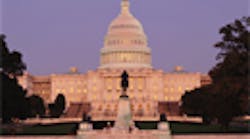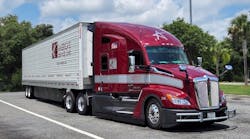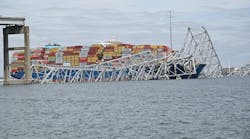With less than two weeks remaining before the Highway Trust Fund runs out of money again, Congress appears no closer to solving the funding issue. Having pumped $7 billion into the fund in August to keep it solvent until the end of this month, it appears another temporary patch may be in order – this one to fund the program until the end of the year, according to the The Hill, an independent daily covering Capitol Hill when Congress is in session.
Meanwhile, while the drama over funding highway infrastructure drags on, another major transportation bill is facing its own hurdles. The 2009 Surface Transportation bill, also known as the six-year highway reauthorization bill, expires on Sept. 30, While Rep. James Oberstar (D-MN) continues to seek a new authorization to the tune of $500 billion, President Barack Obama and Transportation Secretary Ray LaHood are pushing an 18-month patch to the Highway Trust Fund and to delay an overall surface transportation bill.
There is yet another battle waging behind the scenes and that’s between lobbyist groups and PACs. A new report by the Center for Public Integrity, a nonprofit, non-partisan group dedicated to creating original investigative journalism, claims that over $45 million has been spent so far this year on lobbying efforts to influence the highway bills.
The report, written by Matthew Lewis, details the 1,800-plus organizations lobbying for funds, projects, or both, in the next highway bill. The list includes 475 cities, 160 counties, 95 transit agencies, 75 different road and auto organizations including trucking lobbies, and 65 construction and engineering groups. In all, the report said, “at least 2,100 lobbyists” are working in Washington trying to influence transportation initiatives.
With all this lobbying going on, pulling politicians and so the resulting legislation in many directions, the impact on the country’s infrastructure, and by extension trucking, remains unknown.
“Our immediate concern is that there will be no policy issues such as safety included in the next highway bill at all,” said Clayton Boyce, vp of public affairs and press secretary for the American Trucking Assn. (ATA). “Instead it will include only the money. I don’t know whether there will be any earmarks or not. Long range, our concern is that many of these groups are seeking to divert Highway Trust Fund money away from highways and to special interest causes, like railroads, transit, biking, hiking, ‘livable communities,’ and other purposes.”
The sheer number of lobbyists, according to the report, is both overwhelming and impressive with “at least two dozen individuals with experience as either House Transportation Committee staff or as personal staff to Transportation Committee members.” Also, the report said that “at least 20 former members of Congress” are involved in lobbying efforts. The Transportation Construction Coalition’s “27 member organizations include at least 16 organizations lobbying independently” it said, spending more than $2.7 million and employing at least 50 lobbyists.
A railway lobby, OneRail, alone employs 55 lobbyists and a group called T4America represents more than 90 national and 225 state and local groups with its 45 lobbyists. With such a diverse army of lobbyists in the field, Boyce is concerned that money designated for infrastructure improvements will be heading elsewhere once the bill is eventually signed.
“The taxes that [we] pay for gasoline, and the taxes that trucking companies pay for diesel, should be spent for the purpose intended, highway infrastructure,” he said. “Already, 20% of federal highway fuel taxes raised are harmfully diverted from highways. Groups spending huge amounts of money on lobbying are trying to increase that amount.”
Boyce reiterated the stance that ATA and many other trucking groups have taken on raising diesel fuel taxes to improve highway infrastructure.
“If they want money spent on railroads, for instance, they should levy a tax on the railroads or their customers or suppliers, just as significant taxes are levied on truck fuel and equipment to fund highways,” he said. “The trucking industry is willing to pay even more diesel tax, which is already substantially higher than the tax on gasoline, as long as the revenue is dedicated solely to highways.”




